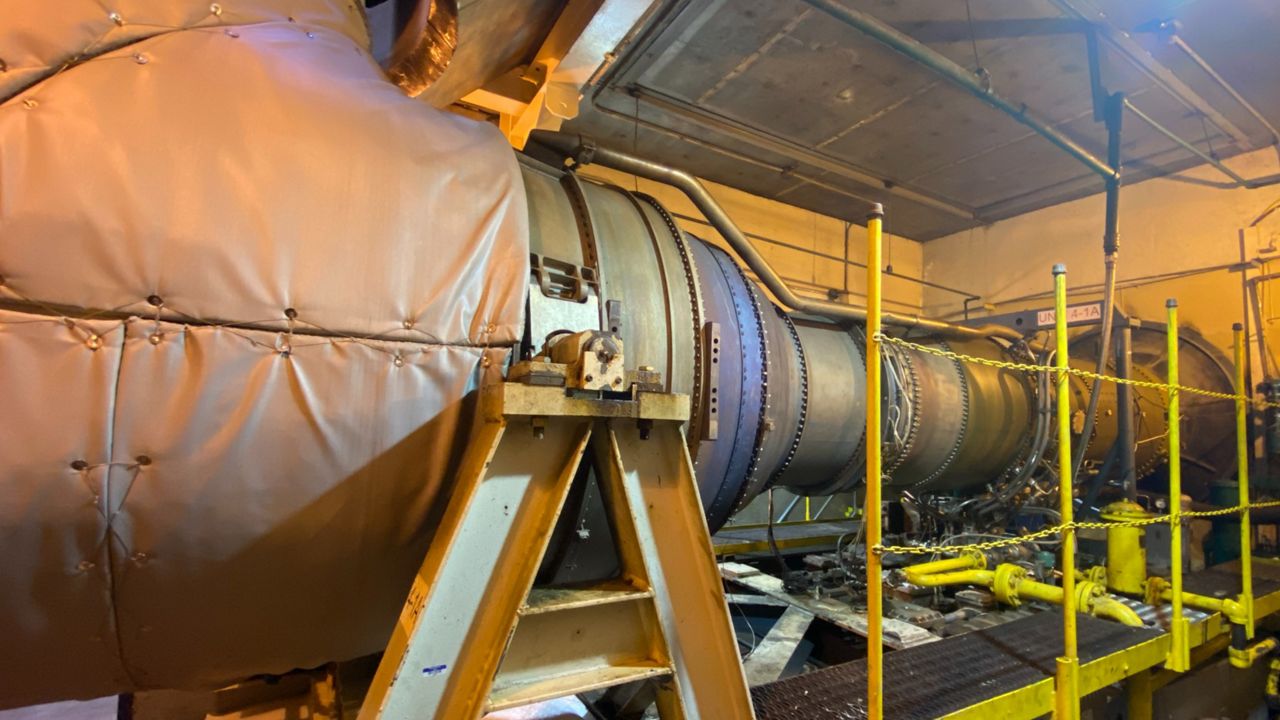The state’s Department of Environmental Conservation has rejected a proposal to upgrade a fossil fuel-burning power plant in Astoria, Queens, designed for use in blackouts and energy crises amid calls from lawmakers to make the city’s grid more dependent on sustainable sources.
The announcement came after years of conflict over the proposal from NRG, a large energy company that owns a so-called “peaker” plant at the northern, industrial edge of Astoria. The plant currently runs on 50-year-old jet turbines, burning oil for emergency electricity supply. The city most recently relied on the plant in 2018, after a ConEd transformer exploded, turning the city sky an eerie blue.
Advocates for removing the peaker plant have argued that they release more pollutants and greenhouse gases than large gas- or oil-powered plants, affecting the health of local residents: Astoria carries the nickname of “Asthma Alley.”
NRG has argued that, while it supports a quick transition to use of renewable energy, its models suggest that the city will continue to need fossil fuel-based power plants to shore up the grid during intense heat and during gaps in supply, such as during day-long periods of no sun or wind.
Its proposal would have completely rebuilt the aging Astoria plant to the tune of $350 million. To curry support for the project, the company sent mailers to local residents underscoring the importance of having a constant energy supply, and spent hundreds of thousands of dollars on state lobbyists.
With the DEC’s rejection, the plant will remain in place until 2023, when state energy efficiency laws require it to close.
State Sen. Mike Gianaris, who represents Astoria, said that the rejection was necessary so that the state could comply with recent sustainable energy laws.
“We will never move to a renewable portfolio if we keep building fossil fuel plants,” he said.
“The risk from the damage to the climate is far greater than some boogeyman of inadequate energy supply, which we've been hearing about for decades and it's never been true.”
Gov. Kathy Hochul applauded the DEC’s rejection of NRG’s application and of another company’s proposal to build a fossil fuel-burning plant in Orange County.
“Climate change is the greatest challenge of our time, and we owe it to future generations to meet our nation-leading climate and emissions reduction goals,” she said in a statement.
In a statement, Tom Atkins, the vice president of development for NRG, called the DEC’s decision “unfortunate.” The project, he said, would have produced immediate reductions in greenhouse gas emissions, and that its updated energy generation plant would have been able to eventually transition to using hydrogen fuel, which does not emit greenhouse gases.
“While we’re deeply disappointed with this decision, NRG will continue to find ways to help New York achieve its emissions goals,” Atkins said.
Though the plant will soon close, it’s not clear how the city or state will push energy companies like NRG to embrace sustainable alternatives, such as by installing large farms of batteries for electricity storage. NRG already hosts a small number of batteries at the Astoria plant.
Press representatives for the city did not immediately respond to a request for comment.
Gianaris said that the state legislature has not done enough to put “meat on the bones” of the 2019 Climate Leadership and Community Protection Act to incentivize and push energy companies to embrace renewables — something he hopes to do in the coming session.
“If you continue to coddle the fossil fuel industry, you will never get to the point where you need to be with renewables. The issue needs to be forced,” he said. “If you give this industry an inch, they'll take a mile.”
